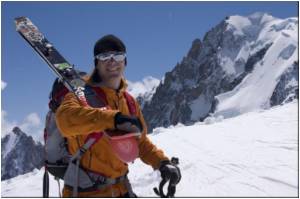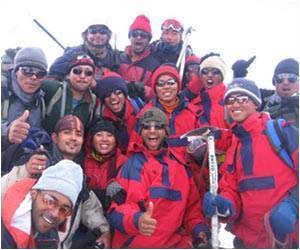
There were a similar number of climbers attempting the summit last weekend, he said, with four climbers dying of exhaustion and altitude sickness on Saturday on one of the deadliest-ever days on the peak.
German national Eberhard Schaaf, 61, South Korean Song Won-Bin, 44, 33-year-old Nepali-born Canadian Shriya Shah and Chinese climber Ha Wenyi, 55, were all found dead near the summit.
A Sherpa mountain guide had been reported missing but Shrestha said the information turned out to be false.
Due to an increased numbers of climbers in recent years, there is a bottle-neck every season at the Hillary Step, a rockface near the peak that climbers from the Nepal side have to ascend and descend with the help of ropes.
The climbing season runs from late March to the first week in June but this season's first clear conditions for reaching the peak were on Friday, two weeks later than usual.
Advertisement
"The climbers have to rely on a single rope and the traffic jam there will delay the ascents for hours," he said by telephone from base camp.
Advertisement
"Then, there is the issue of oxygen... high up, you tend to use more."
Zimba Zangbu Sherpa, president of the Nepal Mountaineering Association, said climbers were increasingly taking unnecessary risks when time was running out or conditions were poor.
"Now there are so many people trying to reach the top, vying for this or that record," he said.
Some climbers near the peak -- most of whom have paid tens of thousands of dollars on the expedition -- often ignore the advice to expert guides to turn back, he added.
"In some cases, they don't even heed the suggestions of their Sherpa guides. The Sherpas can't advise them otherwise because their clients will think 'I'm so close to the mountain, why shouldn't I try a bit more?'"
"If the team leader cancels the expedition and later on the weather is clear then there will be complaints," he added.
Nearly 4,000 people have climbed Everest since 1953 when Sir Edmund Hillary of New Zealand and Sherpa Tenzing Norgay first scaled it.
Source-AFP










